Learn to Break the Story and Go for the Jugular: Julie Klausner on Bravery in Comedy
How lots of introspection and a little Amy Poehler fairy dust got 'Difficult People' made.
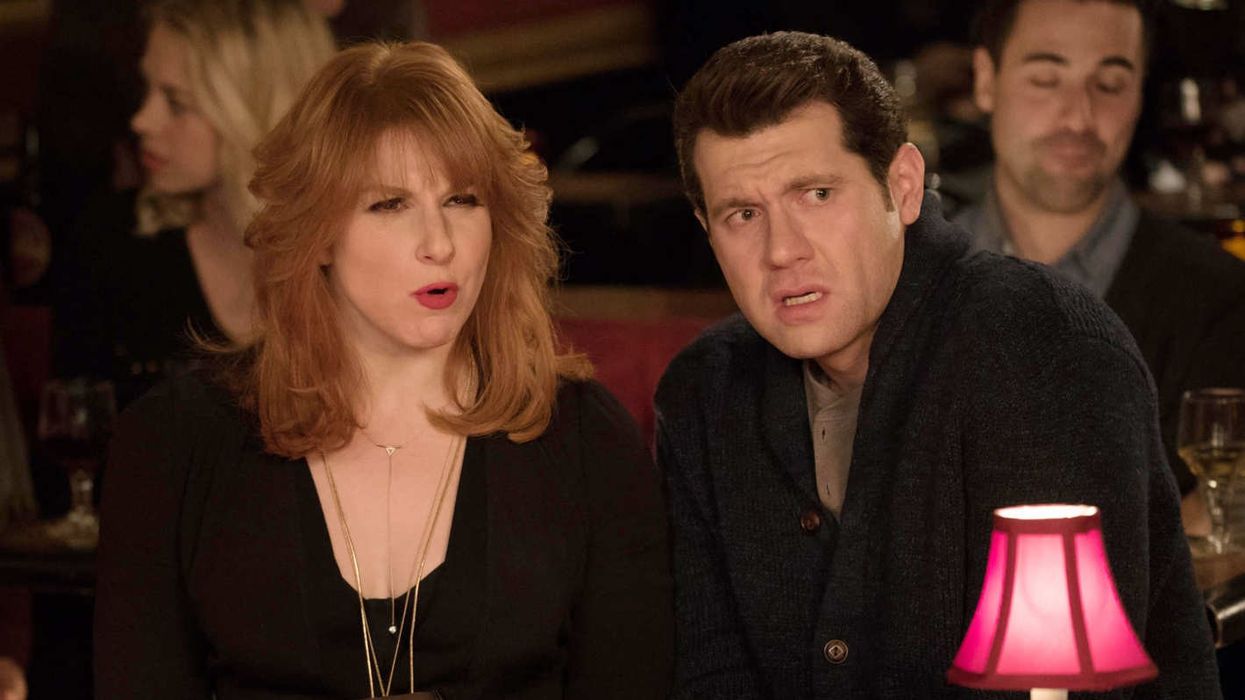
There is a long-standing tradition of New York comedians complaining about stuff on television. With Difficult People, Julie Klausner and Billy Eichner take that tradition and make it high parody. In Klausner’s words, their show is "Curb Your Enthusiasm meets Ab Fab" (with Gilmore Girls level pop-culture references). It’s a show about the best friendship between two extremely bitter, unlikeable, thirty-something New Yorkers trying to make it in showbiz, and failing. Basically, it’s a damn good time.
To give you an idea, Village Voice writer Lara Zarum put together a list of just some of the people or entities that Julie and Billy have roasted: Ryan Murphy, Judah Gershom, Game of Thrones, the podcast Serial, The Showtime Network, David Blaine, Donald Trump, Anne Hathaway, Lady Gaga-Tony Bennet duets, Kevin Smith, How to Get Away with Murder, Tim Robbins, Adult Swim, The Fat Jewish, and the entire state of New Jersey.
Zarum sat down with Klausner—who both created and stars in Difficult People—at this year’s IFP Screen Forward Conference to discuss her career. Over the course of the discussion, Klausner touched on her experiences getting the show picked up, working with Amy Poehler, and building up the bravery to say truly terrible things on television. Here are our favorite moments.
Like many great legends, it started at UCB
Growing up, Klausner wasn’t quite sure how to channel her humor. "I knew I was funny but it took a little while for the world to catch on because I was brooding in my head about how funny I was," she said. "I grew up watching more TV than I did socializing with my peers at school." Though she was gaining a taste for comedy, it wasn’t until Klausner landed at the Upright Citizens Brigade that it all clicked. "When I started taking classes at UCB, I got a lot of positive response and that really kept me going. It’s a very nurturing community. Anybody who’s looking to get into comedy, I will always recommend starting at UCB."
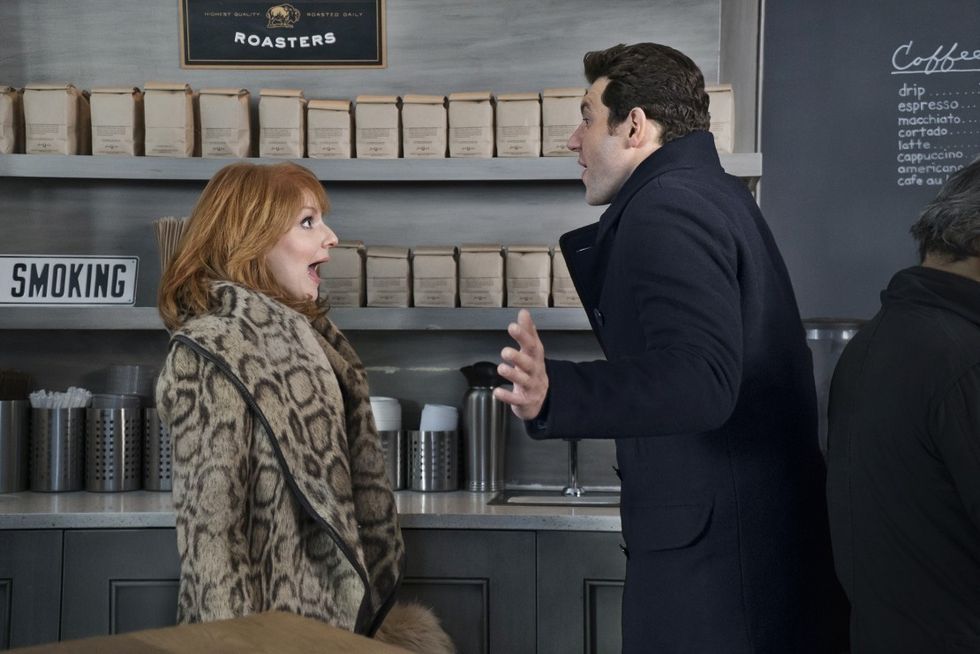
She wrote herself the role that no one else would
"Women don’t usually get to play the funny parts, so the script was something I wrote as a gift to myself," Klausner said frankly.
Though comediennes like Klausner’s mentor Amy Poehler and her peers at SNL have been trailblazers in the field, the truth is that comedy remains a largely male dominated industry.
"I think that there’s always going to be the backwards in heels thing. You’re always going to do twice as much work for half of the acknowledgement," said Klausner, "until you don’t, and then all of a sudden you’re the second coming of Jesus Christ and that’s like one out of a million of us."
"When it comes to comedy, the roles for women are either supportive, or quirky in a one-note way, or else they just sort of supplement the main male character who gets to be funny." Among Klausner’s inspirations are Larry David, who also wrote a show for himself when he grew sick of what everyone else was writing, and Danny McBride in Eastbound & Down. "He’s so funny and he’s such a horrible person. But people aren’t writing think-pieces about what a horrible person he is, they’re just enjoying him because he’s f*cking funny."
"I remember when The Comeback came out, and it was so ahead of its time," she mused. "People were completely turned off by it, and I loved it, and I remember thinking that people are just not used to seeing narcissistic female characters in the middle of this orbit, being despicable, because guess what? That’s the best role."
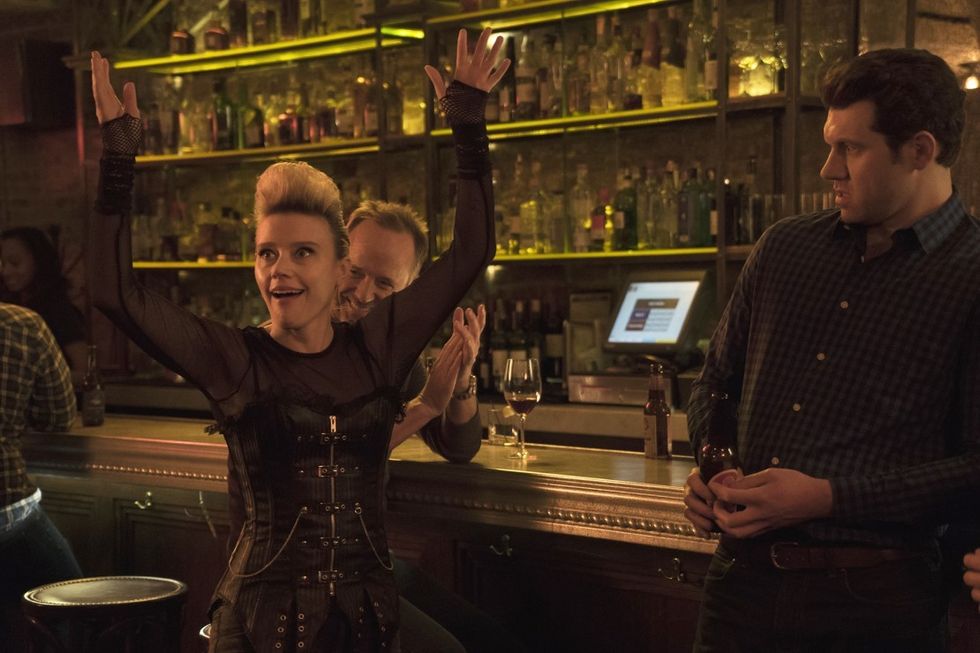
Learning to "break the story"
Before landing her own show, Klausner worked in numerous writer’s rooms. "I learned so much," she said of the experience. "I learned how to break the story. If you’re unfamiliar, breaking the story is basically figuring out what the plot is going to be before you go off and write it. So, that is something I got really, really spoiled doing. Because one of the most frustrating things about writing is just sitting there with your brain and trying to figure out what’s happening in addition to how to tell it."
"The main characters have to instigate the action not just react to it."
"I also learned a lot of the rules like the main characters have to instigate the action not just react to it." And then, of course, she learned about structure. For Difficult People "there’s a Billy story, a Julie story, a Billy and Julie story (or a Billy and Julie runner), which is something that we’re told about but don’t really see."
Beyond that, Klausner learned a key personal lesson. "I also learned that notes didn’t have to be so daunting. I was always afraid of getting notes, not because I wanted to fight them, but because when you put something out and someone’s like ‘I have these ideas about it,’ for me it’s always been very overwhelming." But in the writer’s room, she figured out "notes are not actually that big of a deal. There are certain little tweaks that you can make that will make people happy."
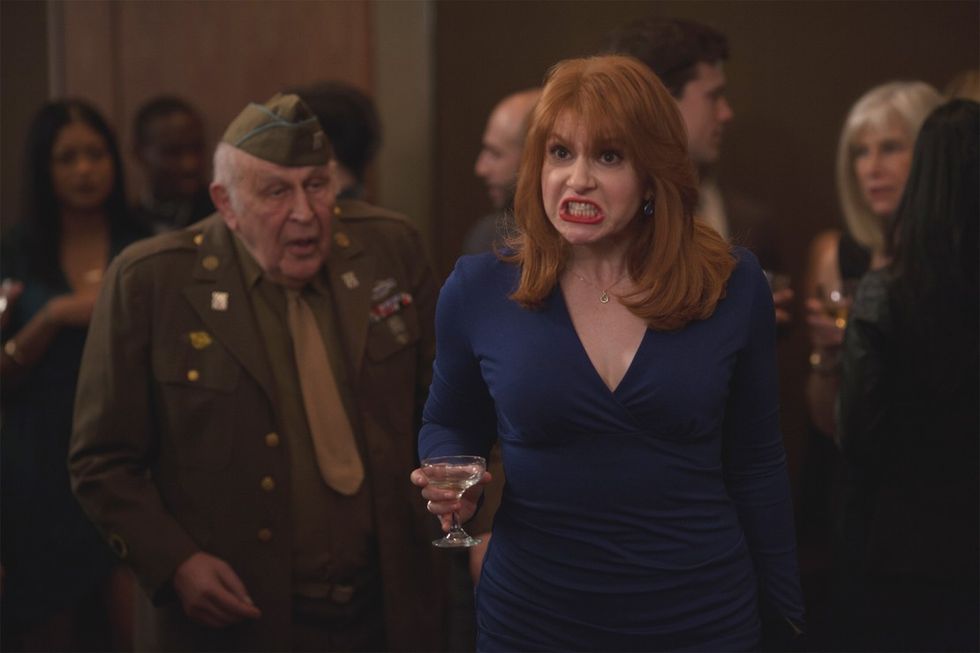
Most importantly, she was able to take all that TV knowledge and apply it to crucial scenes like this one where her character is rattling off ideas for her own shows (quoted by Zarum): "Glee but with dogs. A Botched spin off where Dr. Terry Dubrow’s leather jacket becomes sentient and solves crimes. American Horror Story we promise we thought it through this time. CSI Provincetown and there’s like a ton of piss play. Workplace comedy about lesbian bed death. And something with Annette Benning."
Klausner remained impressed. "Those are all great ideas. Especially something with Annette Benning. I love something with Annette Benning." Who doesn’t?
Amy Poehler is her Fairy Godmother
The show’s executive producer Amy Poehler got involved with the show "pretty much immediately." The two knew each other from UCB and when Klausner’s agents sent Poehler the script, she was sold.
“She gave me a call right away and asked what I was thinking about the series, what would the actual show be? And she helped me develop it.” Over the course of building the show, Poehler took on a mentor role in the process. She even came up with the title.
At its inception, the show was “more like a Curb Your Enthusiasm pilot, just about me, and Billy was in it, but he was almost more like the Jeff Garlin.” But under Poehler’s hand, it took on an Ab Fab structure. “Billy and I are best friends and it’s a show about our love story and because of that we’re able to get away with murder.”
Now in its third season, the show remains under the steady guidance of Fairy Godmother Amy. “Amy gives notes. She’s incredibly involved, she’s incredibly helpful and her notes are very good. They are always looking out for the big picture as far as the rules of the show.”
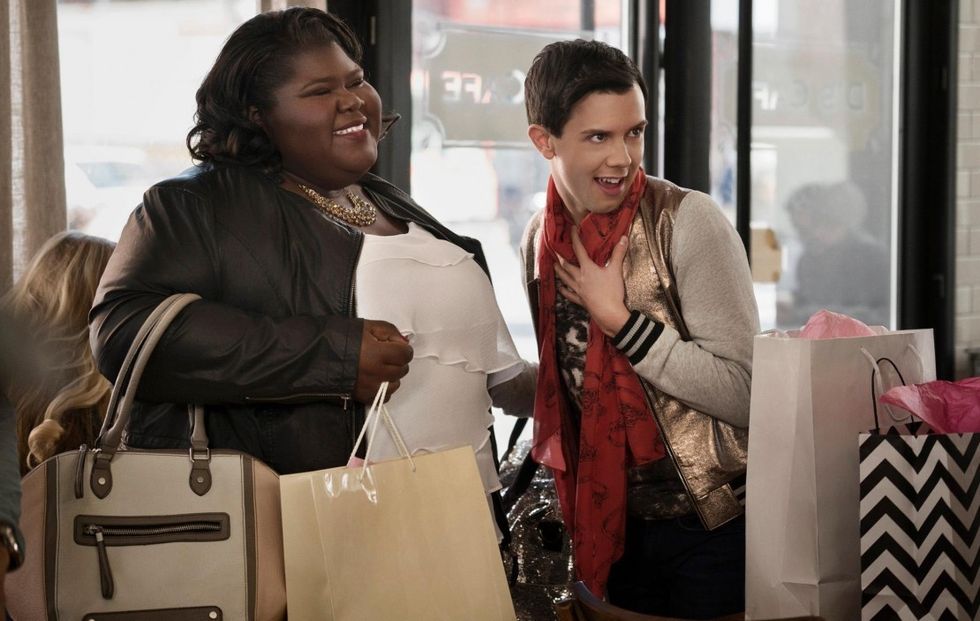
The rules of the show are simple: “Billy and Julie never fight, you’re never going to see one of us up to something that the other doesn’t know about, Arthur and I are going to stay together. It’s just what people want to see.” Shocked? It’s a sitcom, people. “Television is comforting, you want to reset the situation. Even if people do change over the course of the episode, at the end they should probably be the same characters that we know and love. Not to necessarily make every episode interchangeable but there’s something comforting about being able to come back to a show where you know all the dynamics.” She added, “Homer’s never going to like Marge’s sisters.”
"Television is comforting, you want to reset the situation."
USA paid for the pilot but the show landed on Hulu
Difficult People had a rocky path to its now-home on Hulu. Klausner first pitched the show to USA, who gave her the money to make a pilot presentation, “which is like a five or ten-minute version of this thirty minute script that I had already written.”
“And we stretched that money to shoot the whole thing,” she continued. “So we shot the pilot on not a lot of money. Certainly nothing with the word billion in it.” By the time they were done shooting, USA’s scripted comedy department had dissolved. So that deal was done, but at least they came out with a pilot!
“Hulu picked it up based on the pilot and that was really satisfying because they knew exactly what they were getting. It wasn’t just like, ‘I have this idea for a show, you can help me shape it.’ It was like, ‘here’s the pilot, do you want to see more?’ and they did.”
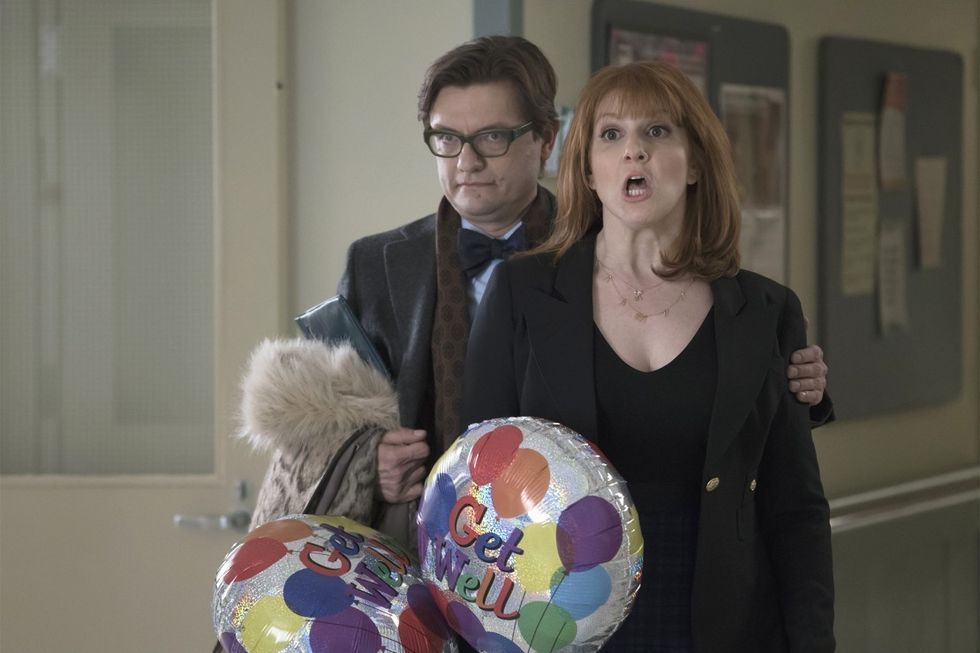
It was a beneficial move all around. It’s unfair, but the more realized your idea, the more likely a network is to ‘get it.’ It’s unfair because “it puts the onus on writers to be producers as well. And that’s is my least favorite part of the process. Like I don’t want to have to f*cking name the camera. I don’t want to know that you have a... uh... 'Kodak Six.' You know what I mean?”
“Is that why you shot the whole pilot instead of just a presentation?” asked Zarum.
“That was Amy being super ambitious,” answered Klausner. “What Amy wants, Amy gets. Amy’s good, and really smart about strategizing. When USA passed, of course I was really bummed, and she was like, ‘This is what I planned the whole time!’ Who knows if she was lying, but she was like, ‘This is exactly what I wanted. It’ll live somewhere else. They paid us to make the pilot.’”
"To get your creative juices flowing, saying things out loud makes such a difference."
She mined her personal experiences for comedy gold
While she was learning structure in writer’s rooms during the day, Klausner was also running a popular podcast in her free time called “How Was Your Week?”
“I started the podcast as a means of challenging myself to do my version of standup, which is to just be in my apartment with a microphone attached to my computer talking and telling stories about the past week.” When it came time to write the pilot for Difficult People, Klausner revisited her episodes, mining her stories and observations for plotlines and character flavor.
“They were things that I had to say out loud to myself in order to realize them and be able to draw from them. Very similar to breaking the story in a room, it was just a different part of the brain—when you’re talking and realizing, as opposed to when you’re sitting and writing and thinking.”
Zarum agreed. “I am such an advocate of talking. To get your creative juices flowing, saying things out loud makes such a difference.”
“That’s why you should get a cat,” suggested Klausner helpfully, “then you’re not talking to yourself.” (Klausner famously employs this technique with her tuxedo cat, Jimmy Jazz.)
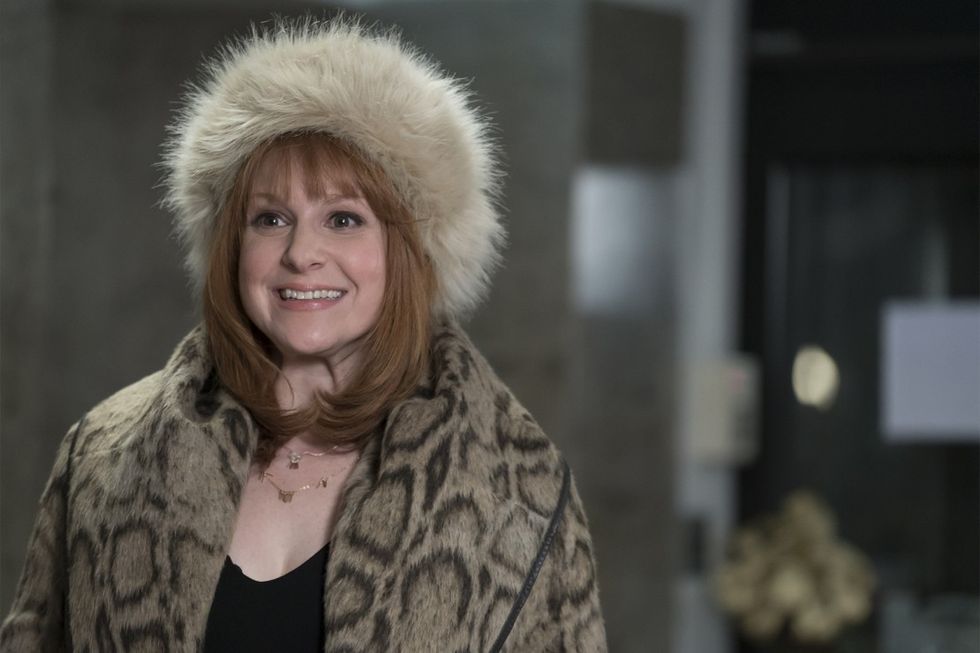
Fast and furious shooting
Because of their tight budget, Klausner said they will frequently shoot ten to fifteen pages per day. “It’s probably closer to ten on average,” she corrected. “But if we’re shooting on one of our few sets, like if we’re shooting my apartment, we will shoot a whole really long day in that set. And I’ll just go across the street and change and keep that up. We are fast and furious.” It helps with the speed to have three cameras shooting at once, she added.
At the beginning of each scene, the actors do something called a “linethrough” with the director Jeffrey Walker. “We’ll read it out loud with Jeffrey, and we’ll talk about it a little bit, and if there needs to be something re-written then I’ll rewrite it on the spot and then we’ll block it. And once we block it, then we go across the street and we just start shooting. So, there isn’t a lot of rehearsal.”
There are other tricks too, to keeping the budget down. Some of those come in the writing and pre-production phases. “They make sure that we truncate as much as possible, we get rid of as many extraneous locations as possible. You’ll see it’s kind of like a running joke, there are a lot of actors that don’t speak. If there’s like a group of girls, only one of the girls will speak. Because that’s a budget thing, you have to pay someone if they talk.” She said, referring to an old Hollywood rule, “There’s not an “under five” anymore so if they speak, you pay them as a principal. So yeah, we’ll cut extraneous characters, locations, edit it within the f*ck of it’s life. But then once you’re rolling you’re rolling.”
"If you see a scene of me and Billy renting shoes at a bowling alley, just know that was a synagogue on 34th street."
You can't make her leave New York
Klausner, like many New York comics before her, has a fierce love for her city and refuses to work anywhere else. When you’re working on a tight budget on real locations, that can prove difficult.
“It’s a pain in the ass. We shoot on location and we block shoot, which means that we organize our shooting schedule by cast and location availability,” she explained.” So, we’ll do all the scenes in the restaurant for the season in the course of a week.” Having one director makes it slightly easier, but it’s still a lot to keep track of. “In one day, we’ll do scenes from six different episodes and you have to keep track of the continuity.”
She does it for the love of the city, and for the veracity it adds. Though sometimes they have to make up locations on the fly. “We have an art department that will dress up one location to look like another location if we can only shoot in one spot that day. Like we shot in a synagogue and they let us use their coat check to dress up and make it look like a bowling alley which we did… so if you see a scene of me and Billy renting shoes at a bowling alley, just know that was a synagogue on 34th street.”
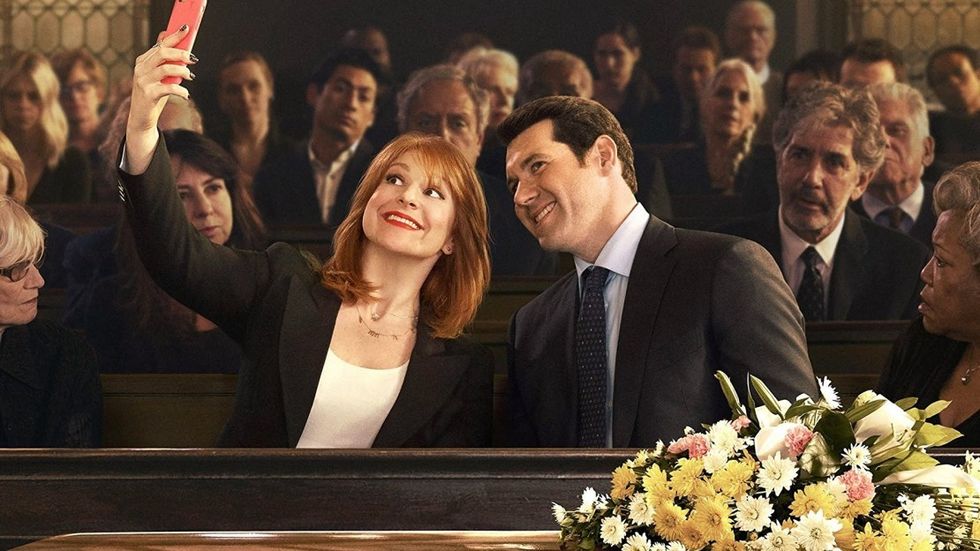
Don't you dare bash critics around her
As a writer of a show that is predominantly pop culture commentary, Klausner defines the ever-blurring line between art and criticism. And to her, there’s really no line at all.
“There are a couple of things that really annoy me,” she began. “One is when people complain about other people looking at their phones. It’s like, I know they’re addicted. That’s Steve Jobs' fault. That’s not a valid character judgement.”
The other is when film and TV makers try to reconcile a bad review by trashing the form. “I happen to believe that criticism can be a very powerful form of creation.” Klausner enthused, “I’m a huge fan of Pauline Kael, she’s probably my favorite writer of all time. When she was writing about movies, was she creating something in her own right? Of course. It was literary non-fiction. It was stunning. Her opinions about movies, I think, sometimes outlast the importance of the movies themselves, insofar as what she was doing with language, and opinion, and insight into art as insight into life.”
So yes, “it’s a little snotty to say, ‘well you don’t get it, what do you do?’ Being creative is being creative. The only people that you can feel smarmy about are the people that literally don’t do anything.” She concluded, “You know, if you’re intelligent enough to write something about something you’re passionate about, how is that not creative?”
Comedy is better when you go for the jugular
With all of the people she’s insulted on her show, Klausner must worry about injuring some industry relationships, right?
“Yeah of course I’m worried about that stuff, but I also know that I’m funniest when I go for it, so I tend to go for it.”
Klausner elaborated, “I’m a strong believer in letting other people censor you, because when you censor yourself it just doesn’t lead to good writing in my experience. So, I do push myself to be brave when it comes to that stuff.”
She knows it’s a harsh show, but that doesn’t stop her. “I don’t write everything we say, I don’t believe everything we say by any stretch of the imagination, but ya know, I find when you go for the jugular it’s just better for the creative end.”

 "'Back Home"via Mercedes Arutro
"'Back Home"via Mercedes Arutro 'Back Home'via Mercedes Arutro
'Back Home'via Mercedes Arutro 









